Indoor plants have seen a surge in popularity over recent years, and it’s no surprise why. More than just a trendy home decor item, they offer a myriad of benefits that positively impact your health, mood, and living spaces. As this article delves into this green world, you’ll uncover the substantial benefits of incorporating indoor plants into your home or workplace. Let’s explore how these leafy friends purify your air, bolster your mental health, enhance your interior decor, and control humidity while reducing noise. It will also introduce some stellar examples of indoor plants to consider and their care tips.
Benefits Of Indoor Plants
Here are some of the most impressive science-backed benefits of indoor plants:
Air Purification
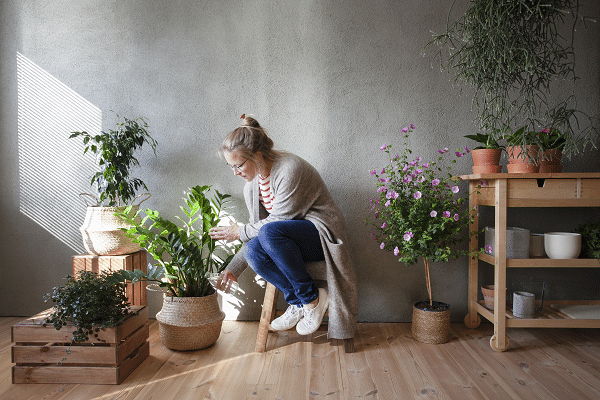
Indoor plants serve as natural air purifiers, filtering out harmful toxins and releasing fresh oxygen. This process is achieved through a phenomenon known as phytoremediation, where plants absorb pollutants through their leaves, then break them down in their soil. For example, the Spider Plant and Peace Lily are well-known for their ability to remove formaldehyde, a common indoor pollutant, from the air.
According to a study, certain plants can eliminate up to 87% of volatile organic compounds (VOCs) within 24 hours. VOCs include substances like benzene and trichloroethylene, found in common household items such as rugs, cigarette smoke, grocery bags, and paint. Thus, having indoor plants significantly improves air quality, contributing to a healthier indoor environment.
Improvement Of Mental Health

Having indoor plants can have a profound impact on your mental well-being. Being in the presence of nature, even indoors, has been shown to lower stress levels, boost mood, and even increase productivity. This is partly due to the biophilia hypothesis, which suggests that humans possess an innate tendency to seek connections with nature and other forms of life.
In the workplace, research has shown that spaces with plants lead to increased concentration and improved job satisfaction among employees. Similarly, incorporating plants into a home office or study can create a calming atmosphere conducive to focused work or study. From a psychological perspective, tending to plants can also provide a sense of achievement and responsibility, further enhancing emotional well-being.
Enhancing Interior Decor
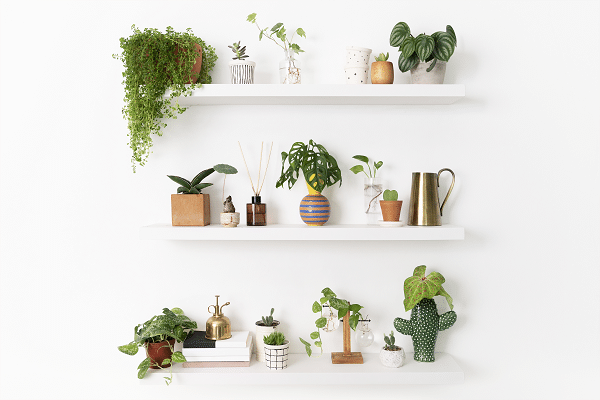
From a decor perspective, indoor plants add texture, color, and life to any interior space, be it minimalist, bohemian, or anything in between. Large plants can serve as focal points in a room, while smaller plants can be used to fill empty spaces, soften corners, or even be hung from the ceiling for a unique touch.
Moreover, plants are incredibly versatile decor elements that can complement various interior styles. Whether it’s the lush foliage of a Monstera deliciosa adding a tropical touch to a bohemian living room, or the elegant simplicity of a Snake Plant fitting seamlessly into a minimalist workspace, plants bring character and depth to any interior design.
Humidity Control And Noise Reduction
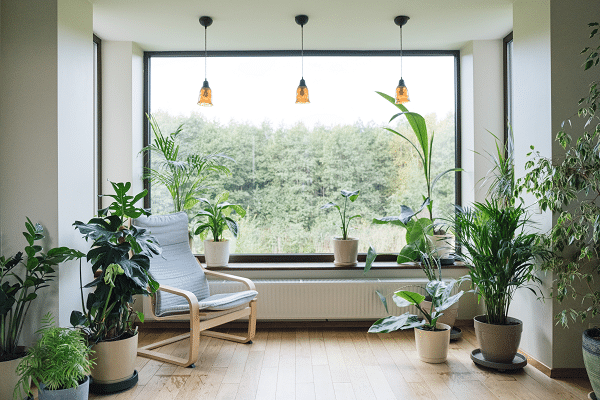
Indoor plants contribute to a comfortable indoor climate by increasing humidity. This is particularly beneficial in dry seasons or in air-conditioned spaces where the air can become excessively dry. Plants release moisture into the air during a process called transpiration, thus acting as natural humidifiers.
Additionally, indoor plants can help reduce noise levels. They do so by absorbing, reflecting, and diffracting sounds. This makes plants an excellent addition to noisy environments, such as an office or a room facing a busy street, providing a more peaceful and serene atmosphere.
Great Indoor Plants
Here are some of the best plants for indoors:
Spider Plant

The Spider Plant, with its striking arched foliage and air-purifying capabilities, is an excellent addition to any indoor space. Resilient and hardy, this plant is perfect for those new to plant parenthood or those with less-than-green thumbs.
In terms of care, Spider Plants are relatively low maintenance. They thrive in bright, indirect light, but can also tolerate low light. Watering should be done when the top inch of soil dries out. Additionally, Spider Plants are prolific propagators. The small plantlets that grow from the mother plant can be potted to create new plants, making the Spider Plant a gift that keeps on giving.
Snake Plant
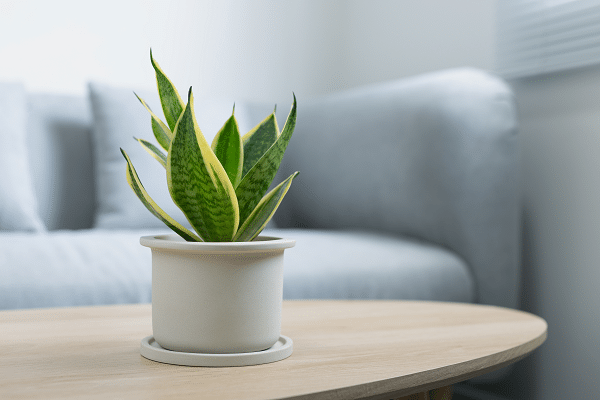
The Snake Plant is another excellent indoor plant option. This plant stands out due to its unique ability to release oxygen at night, making it an ideal bedroom companion. Furthermore, Snake Plants are superb air purifiers, capable of removing toxins such as formaldehyde and benzene.
Snake Plants are incredibly resilient and require little maintenance, making them great for busy individuals. They can withstand a variety of light conditions, from low light to direct sun. Watering should be infrequent, as these plants are prone to root rot if overwatered. The Snake Plant’s architectural shape and upward growth make it a stylish addition to any space.
Peace Lily
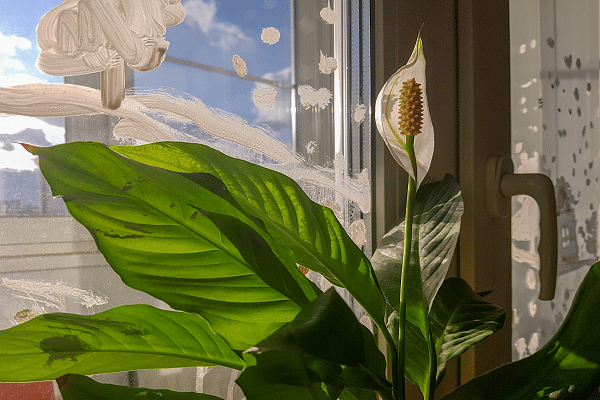
The Peace Lily is a crowd-pleaser with its dark green leaves and stunning white flowers. Despite its elegant appearance, the Peace Lily is surprisingly hardy and can bloom even in low-light conditions. Moreover, it’s an excellent air purifier, particularly efficient at removing ammonia from the air.
Peace Lilies prefer a shady spot and their soil to be kept moist but not waterlogged. One unique feature of this plant is its expressive nature – when it’s thirsty, it’ll let you know by a slight droop. Within half an hour of watering, the plant will perk back up. This communication makes caring for a Peace Lily a gratifying and interactive experience.
English Ivy

English Ivy, also known as Hedera helix, is a versatile and hardy indoor plant that can be a wonderful addition to any indoor space. Besides its classic appeal, it’s particularly noted for its excellent air-purifying properties. English Ivy is known as the number one air-purifying plant, as it’s especially effective at absorbing formaldehyde.
Despite its lush appearance, English Ivy is relatively easy to care for. It thrives in moderate conditions, preferring bright, indirect light, but it can also tolerate lower light. When it comes to watering, it prefers its soil to be kept slightly dry, so it’s better to err on the side of under-watering rather than over-watering.
Conclusion
The benefits of indoor plants extend far beyond their aesthetic appeal. They provide a healthier living environment, boost mental well-being, and bring natural beauty into your homes and workplaces. By understanding the specific benefits and needs of plants like the Spider Plant, Snake Plant, Peace Lily, and English Ivy, you can create an indoor oasis tailored to your preferences and lifestyle. So, let’s breathe life into your spaces with the power of plants – your mind, body, and decor will thank you.


